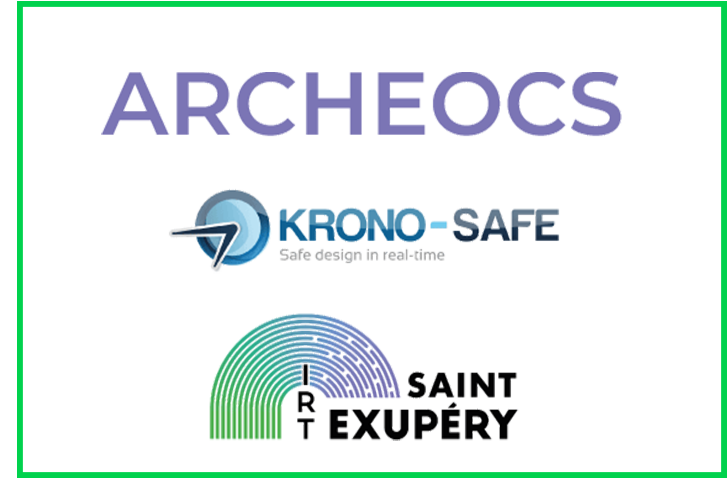The ARCHEOCS project, launched in November 2020, aims to provide manufacturers in the aeronautics, space and automotive industries with a methodological framework and software tools that meet the challenges of delivering mission-critical applications on multi-core and multi-processor distributed execution platforms. Indeed, to ensure the efficiency of the development and deployment processes of such applications and to guarantee their performance and safety at runtime, these parallel computing capabilities require specific methods and tools, in particular when the systems exploiting these capabilities are subject to a formal certification process.
The IRT Saint Exupéry, institute dedicated to aeronautics, space and embedded systems with a center of expertise in real-time critical systems engineering launches the ARCHEOCS project.
A real-time system must react to its environment while respecting strict temporal constraints. For such a system, having an architecture with several computing units allows to increase the processing capacity and thus to realize heavier calculations in shorter times. This hardware parallelism is also a way to facilitate the simultaneous processing of multiple events. Multi-core architectures have thus become the de facto standard for a very large part of general-purpose systems. For example, many of our everyday devices are now equipped with such platforms: desktop computers, cell phones, etc.
In the field of critical systems, having the ability to integrate such architectures is a major challenge in the objective of improving the performance, safety and scalability of these systems. This capacity relies on the exploitation of the intrinsic parallelism offered by these architectures, and in particular on the ability to decompose software applications into parallelisable components, to deploy these components and to ensure their parallel execution while preserving the expected functional and temporal properties. This requires mastering parallelism on the computing units, but also on the inter-unit communication flows for which the guarantee of testability (and therefore of determinism), of punctuality and of fault tolerance is expected at the global level of the system.
Finding economically viable solutions that cover the entire development process, from the system design stage to on-target deployment and overall validation, is a real challenge.
The objective of the ARCHEOCS program is to address this challenge by focusing on 4 industrial domains: aeronautics, space, automotive, and energy. After the first interesting results obtained in the framework of the IRT CAPHCA project, the ARCHEOCS project aims at the following objectives
- Provide a real-time “correct-by-construction” execution platform on multicore and multiprocessor architectures,
- Provide the means for optimized deployment of applications on multicore and multiprocessor platforms (integration strategy, architecture optimization, formalization),
- Provide efficient means of developing applications deployed on multicore and multiprocessor platforms (debugging, simulation),
- Provide the means to demonstrate compliance with the temporal requirements of applications deployed on multicore and multiprocessor platforms (interference analysis, temporal analysis).
ARCHEOCS in a few words
- Project : IRT Saint Exupéry
- Duration : 36 months
- Total effort : 18 HxA
Industrial partners : Renault Software Labs, Liebherr Aerospace, Safran Electronics & Defense, Thales Alenia Space, CS GROUP – France, Continental Automotive France
Technology partners : KRONO-SAFE, ASTC/VLAB Works
Academic partners : ONERA, Télécom Paris, INRIA Kairos, IRIT Traces, ISAE-SUPAERO


